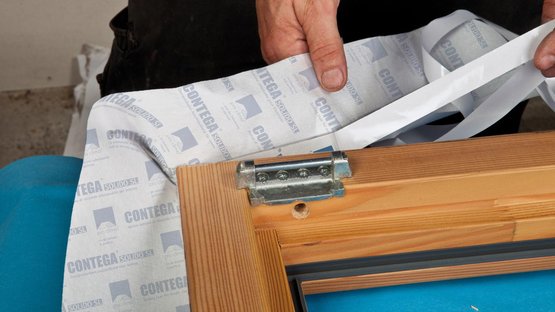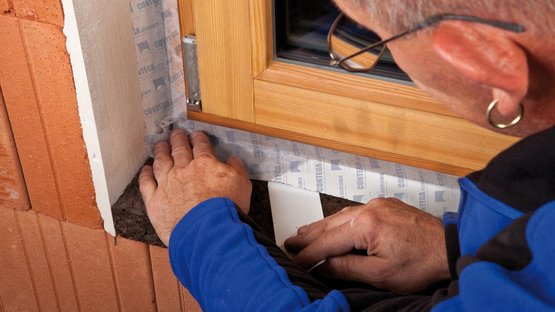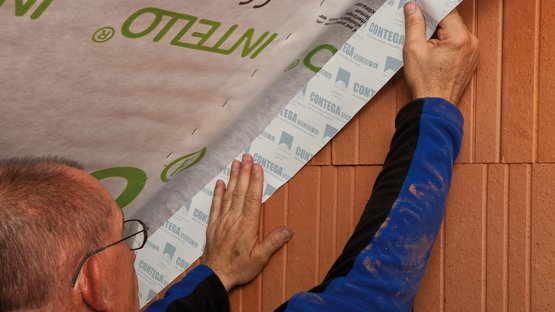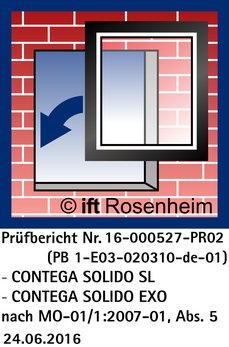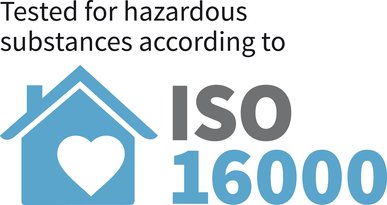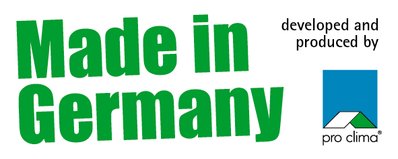Full-surface adhesive plaster/window-sealing tape, for interior use
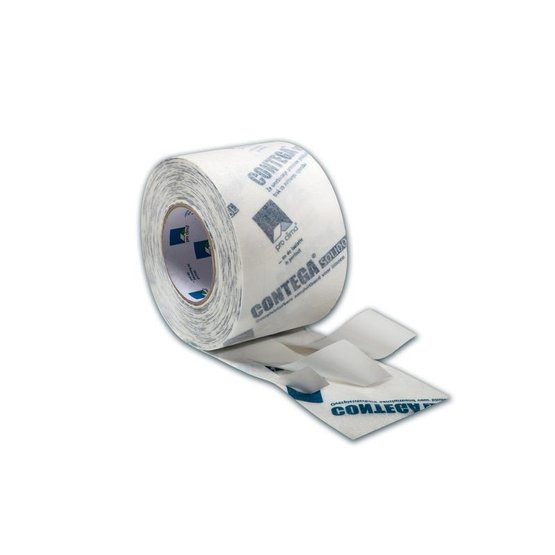
Advantages
- Saves time: the joint is immediately airtight and can be subjected to loading
- Can be plastered over directly: defined transition between window and/or vapour check and plasterwork
- Reliable joints: water-resistant SOLID adhesive has extremely strong adhesion on mineral subsurfaces too
- Independently confirmed suitability: tests in accordance with MO-01/1 passed at IFT in Rosenheim, Germany
- Construction in adherence with standards: for airtight sealing in accordance with DIN 4108-7, SIA 180 and RE 2020
- Excellent values in hazardous substance testing, has been tested according to the ISO 16000 evaluation scheme
Areas of application
For interior airtight and vapour-checking joints between windows, doors or airtightness layers and adjacent building components made of wood or mineral subsurfaces such as concrete and masonry, with full-surface adhesion. The modified water-resistant SOLID adhesive ensures quick and permanent joints with the subsurface. The taped joint is immediately airtight and can be subjected to loading. The fleece can simply be plastered over in accordance with the installation instructions.
Splits on release film
| Tape width | Split (approx.) |
|---|---|
| 80 mm (3 1/8") | 20 | 60 mm (7/8" | 2 3/8") |
| 100 mm (4") | 20 | 40 | 40 mm (7/8" | 1 5/8" | 1 5/8") |
| 150 mm (5 7/8") | 20 | 70 | 60 mm (3/4" | 2 3/4" | 2 3/8") |
| 200 mm (7 7/8") | 20 | 100 | 80 mm (3/4" | 4" | 3 1/8") |
Installation instructions
General conditions
The bonds should not be subjected to tensile strain. Rub the adhesive tapes firmly to secure the adhesive bonds, taking care to ensure that there is sufficient resistance pressure behind them. Airtight seals can only be achieved if the sealing tape is installed free of folds and breaks. Ventilate regularly and systematically to prevent build-up of excessive humidity. Use a dryer if necessary.
When plastering, please observe the recommendations of the plaster manufacturer for non-absorbent subsurfaces. A bonding course may be necessary.
Substrate
Clean subsurfaces before sticking. Uneven mineral subsurfaces may need to be levelled with a smooth finish. Adhesion to frozen surfaces is not possible. There must be no water-repellent substances (e.g. grease or silicone) on surfaces where adhesives are to be applied. The width of the adhesive tape that is to be plastered over should generally not exceed 60 mm (2 3/8") or 50% of the soffit area. Detailed recommendations can be obtained from the relevant plaster producer. Subsurfaces must be sufficiently dry and stable.
Permanent adhesion is achieved on all pro clima interior membranes and on other vapour check and airtight membranes (e.g. those made of PE, PA, PP and aluminium).
Adhesion can be carried out on planed and painted wood, hard plastics, hard wood-based panels (chipboard, OSB and plywood panels), metal (e.g. pipes, windows etc.), rigid foam insulation materials that can be plastered over, and on mineral subsurfaces such as concrete and masonry.
The best results in terms of structural stability are achieved on high-quality subsurfaces. It is your responsibility to check the suitability of the subsurface; adhesion tests may be necessary. Pre-treatment with TESCON PRIMER is recommended in the case of subsurfaces with insufficient stability.

